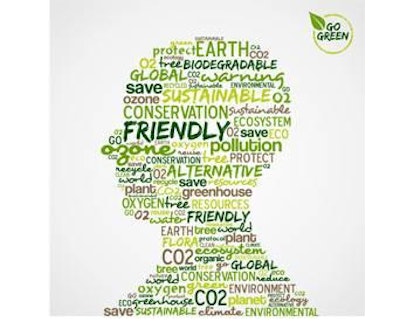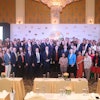
The egg industry in the United States and the rest of the world doesn’t have a great track record for engaging with customers and nongovernmental organizations (NGOs), which oppose it to achieve mutually agreed upon objectives.Legislation in the EU was passed banning the use of conventional cages to house hens and approving enriched colony cages as an acceptable alternative. But in some countries, activist groups successfully pushed retailers to mandate that only cage-free eggs would be sold in their stores shortly after, or in the case of Germany, even before, the EU-wide conventional cage ban took effect. The situation hasn’t been much better in the U.S. where the United Egg Producers’ (UEP) agreement with the Humane Society of the United States (HSUS) has yielded a truce of sorts, but it is uncertain if it will last with the failure to pass the Egg Bill through Congress.
Matt Sutton-Vermeulen, senior partner, The Prasino Group, speaking at the United Egg Producers’ annual meeting in Asheville, N.C., said that whether the issue is animal welfare or the environment, both of which are components of sustainability, the roundtable process can be an effective way to engage customers and activists groups and reach consensus on definitions and working toward a better future. He has played a role in establishing the Global Roundtable for Sustainable Beef (GRSB).
Roundtable process
GRSB is an initiative involving producers, packers/processors, retailers, foodservice operators, suppliers and NGOs to advance continuous improvement in sustainability of the global beef value chain through leadership, science, and multi-stakeholder engagement and collaboration. According to its website, “GRSB envisions a world in which all aspects of the beef value chain are environmentally sound, socially responsible and economically viable.”
The GRSB now has 31 members, including producers and producer associations such as National Cattlemen’s Beef Association, Cattle Council of Australia, Canadian Cattlemen’s Association, American Grassfed Association, Alianca de Terra in Brazil, Marfrig, JBS, OSI Group and Cargill. Important beef buyers like Walmart, Woolworth’s Grocery stores (Australia) and McDonald’s are GRSB members. NGOs such as World Wildlife Fund, National Wildlife Federation and the Rainforest Alliance are also members. Setting the ground rules Sutton-Vermeulen said it is imperative that very specific expectations are set for all roundtable participants. For GRSB, he explained that all of the participants had to accept that it was about continuous improvement in the sustainability of beef production, it wasn’t about getting rid of beef. Roundtable members also had to accept that there were many systems of production; for example, they couldn’t just have an agenda for grass-fed beef. He said that the same would be true for any future egg roundtable; it wouldn’t be to get rid of egg consumption or any one aspect of egg production, like cages.
Roundtable member groups have to agree to abide by the rules established by the group. The NGOs have to be willing to accept the presence of the industry, but would, of course, try to influence its future activities. “Everyone has to check their guns at the door and recognize the important role the product and each of the stakeholders play,” he said. “Greenpeace doesn’t participate in these groups, but World Wildlife Fund does participate.” He explained that some NGOs really dislike the World Wildlife Fund for how they have chosen to engage with corporations in a cooperative manner to seek change and not try and destroy them. At the same time, he said that some producers and corporations have also expressed issues with the World Wildlife Fund and other NGOs for engaging, but that’s what happens to leaders.
Sutton-Vermeulen said, “One key for a successful roundtable is that you have rules of engagement that are followed and adhered to.” In the case of the GRSB roundtable, he said that two NGO groups who expressed interest were not welcomed to the table because of public statements against all beef and meat production.
Defining sustainability
There are many different definitions of sustainability, according to Sutton-Vermeulen. “You have to define sustainability or someone else is going to define it for you. It all has to come back to measuring, monitoring and managing. Then you can report certifiable results,” he said.
He told egg producers to “Throw out the definitions of sustainability. You need to make your own definition based on your triple bottom line and the triple bottom line of the customers you serve.” The triple bottom line is economics, environment and social responsibility. “Don’t let anyone tell you that your definition of sustainability is wrong,” he said.
“You need to understand your customers so that your sustainability definition serves their needs as well,” Sutton-Vermeulen continued. In order to accomplish this, he said, “You need to have people in your organization who walk, talk and breathe the same air as the people in the corporate social responsibility [CSR] departments of your customers. Define sustainability before it defines you. This is a journey, it is not a destination.”
Learning from the other side
“I am a big believer in science, and I am a big believer in social science,” he said. “It is good that we talk about the importance of science, but don’t throw social science out. It is probably the most important science, and we [producers] need to get better at it. If we don’t, then the opposition just whips our butts every time.”
“We [can] own social science if we want to,” Sutton-Vermeulen said. “If we don’t want to own it and reject it and say that we only want to focus on biological models, then we are dead in the water on sustainability.” To understand the social science side of sustainability, producers need to look through the lens of the customer and of the NGOs. Egg producers will need to have people who can relate to their customer’s CSR people. “It isn’t just NGOs that are biased,” he said. “Producers need to look at their own biases and how they affect their own triple bottom line. Then you can have a healthy discussion.”
“It is all about relationships,” he said. “You need to make deposits in the relationships on what is important to them. You need to be able to make connections on a personal level as well as at a business level.” After showing the results of research that demonstrates that it pays to be really good at sustainability, he assured egg producers that “It pays to be really good [at sustainability].”
Sustainable egg roundtable?
Egg Industry asked Sutton-Vermeulen about the current status of sustainability for egg producers in the U.S. and about the benefits of a roundtable for eggs. He said that the Coalition for Sustainable Egg Supply (CSES) and the study it is funding will provide some good science, but that egg producers, their customers and NGOs don’t have to wait for the study to be finished to start a dialogue on eggs.
Sutton-Vermeulen said that CSES provides a scientific way of addressing sustainability and that the results could lead to a sensible discussion between the interested parties: “CSES does have the ability to help address the social responsibility aspect of sustainability in a significant way, by bringing the parties together to recognize and discuss the triple bottom line implications of hen housing with the data to back it up. I believe the missed opportunity is witholding the data until it has been submitted for scientific publication. I respect the requirements and value of generating peer-reviewed publications, but I believe ongoing sharing of the data as part of relationship building can help all stakeholders discover the truths as part of a transparent journey. This far outweighs the value of witholding data for a scientific publication. In my opinion, this is an example of how the social science can outweigh the value of the biological science.”
Egg Industry also asked Sutton-Vermeulen about NGOs that may not directly attack egg producers themselves, but that raise and funnel funds to other groups that do, and can they be trusted as partners in collaborative efforts. He said, “Resource allocation is how you demonstrate your commitment to a partnership or relationship.” If NGOs want to partner with producers to affect change, then they shouldn’t be funneling money into activities and campaigns attacking those producers, according to Sutton-Vermeulen. “The real intention of what an organization wants is demonstrated by where it invests its money.”


















